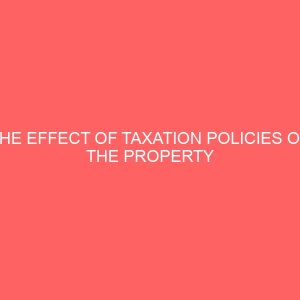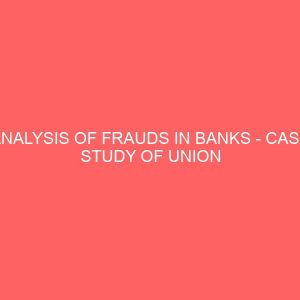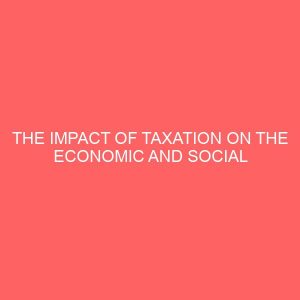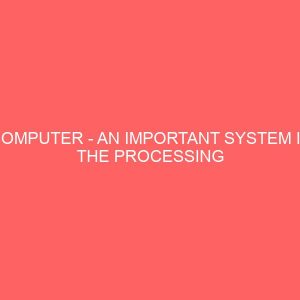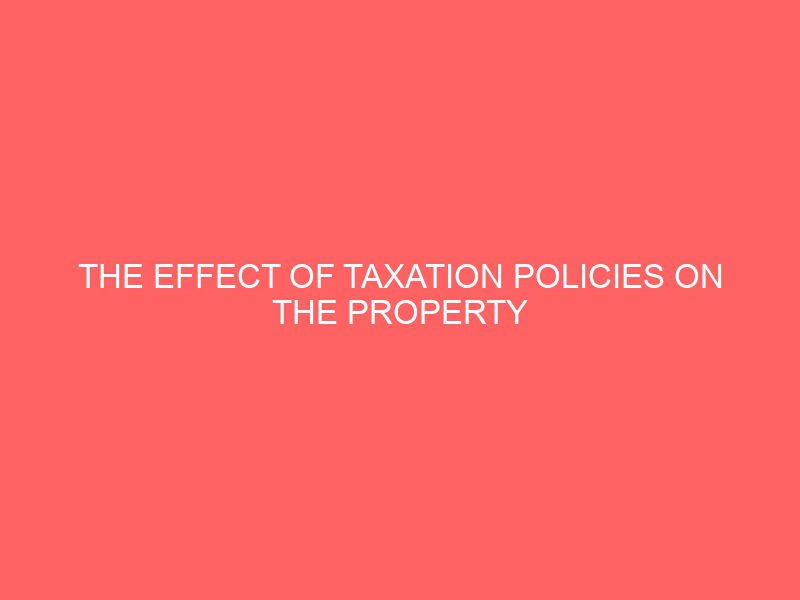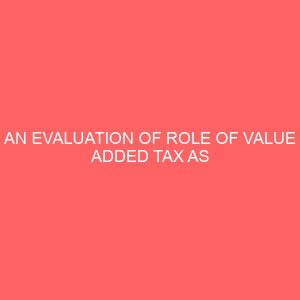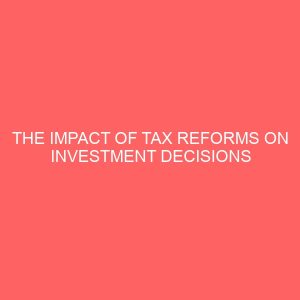Description
CHAPTER ONE
introduction
Background of the study
Housing Literallymeans Building or shelters in which people live work dwell etc and to nation as a critical component in social and economic fabric [Kabir and Bustani, 2009]. It represents one of the most basic human needs. As a unit of environment, it has a profound influence on the health, efficiency, Social behavior, satisfaction and general welfare of the community. To most groupshousing meansshelter but to other it means more as it serves as one of the best indicators of a persons standard of living and his or her place in the society [Nubi, 2008]. It is a priority for the attainment of living standard and it is important to both rural and urban areas.
These attribute make demand for housing to know to bound as population growth and urbanization are increasing very rapidly and the gap between housing need and supply becomes widen. Cultural factors such as preferences and value or social Status, taste and financial resources, also influence a home physical characteristics.
In developing countries, poor housing delivery has been attributed to inadequate mechanism and system for land allocation, funding mortgage institutions and infrastructure. Also the government policies dictate the nature and manner of the market and how activities are run in the body polity. Despite this significance of housing adequate supply has remained a mirage to all carder of the society in Nigeria. The situation is very particular to most developing countries where population is growing at exponential rate and rapid urbanization becoming a num, and discrepancy in housing need and supply is high.
According to Kabir and Bastani IBID, in a developing country like Nigeria, the housing Problem basically relates to quantitative and qualitative inadequacies on the supply side various government policies in the past have been formulated towards overcoming the huge shortage through several housing reform programmers and how the property market operates. Despite these past efforts housing continuous to be a mirage to ordinary Nigerian.
Currently there are various mass housing delivering programs such as the affordable housing scheme that utilize the republic, private partnershipeffort and several private finance initiative models could only provide for about 3% of the required stock. Thissuggest the need for a holistic solution in approaching the problem.
While the quality of the existing stock that do not meet the minimum quality requirement. Thus this study is necessitated to point out the property market operation in minna with the view of finding a lasting solution to the problem of housing and give directions for other areas in Nigeria.
Statement of the Problem
According to [Kabir and Bustani 2009] the housing problem basically relates to quantitative and qualitative inadequacies. On the supply side, various government policies in the past have been formulated towards over coming the various mass having delivery programs such as the affordable housing scheme that utilize the public private partnership effort and several private finance initiative models could only provide for about 3% of the required stock.
A recent study of the housing situation in Nigeria put existing housing stock at 23 per 1000 inhabitant.
The housing deficit is put at 15 million houses [mabagunje 2002] while 12 trillion will be required to finance the deficit, this is about 4time the annual national budget of Nigeria. Home price and rents on the other hand, have grown ahead of general inflation making matters worse the composition of homes for sale and rent on the market has been inexorably shifting towards very expensive homes.
Also Kabir and Bustani ibid state that current scheme include a “site & Service” that provides low-income beneficiaries with serviced plots including tenure Security and help to build their own houses and the second approach helped house-owners in existing squatter area obtain tenure to their land and to improve their dwelling. In spite of the fact that they may help to improve tenure security, these initiate target population low-income earners usually does not benefit from them. Hence, this study is necessitated to asses the effect of taxation policies on the property market operation in minna, Niger state with the view of point out the impact of these policies in the area to serve as a guideline blue-print and working document for other areas.
RESEARCH QUESTIONS
This research therefore is intended to answer the following questions;
What are the various Taxation policies of government that impinges on property market in Minna.
What are the impact of these policies on property market
What are the issues and changes of these policies as they apply to the transaction of the property market in the area.
Aim of the Study
The aim of this study is to assess THE EFFECT OF TAXATION POLICIES ON THE PROPERTY MARKET TRANSACTION IN MINNA.
OBJECTIVE OF THE STUDY
To achieve the aim the following objective are set:
1 To identify the various taxation policies of government that impinges on the property market in Minna
To asses the impact of these policies on the property market.
To examine the issue and changes of these policies as they apply to the transaction of the property market in area.
1.5. SIGNIFICANCE OF THE STUDY
The potential finding of this study will be beneficial in the following ways
To the estate surveyors on the need to be sophisticated in their approach in property market transaction. This will largely help to reduced the image and credibility of the profession and also reliability of their report before their highly estimated users.
It will fill gap in literature as there are death information in this respect of research especially in the study area
Users of property [financiers and developers] will be properly and accurately guided.
1.6. OUTLINE METHODOLOGY
The following research methodologies shall be the employed for this study
Method of data collection; for the success of this research work primary and secondary method of data collection shall be employed.
Sources of data; data for this research work will be sourced through questionnaire and back-up with interview.
Target population; some of the team of expect [valuers] and property developers [investors] in the study area will be considered and sample their opinion on the effect of taxation policies on property market transaction in the study area.
Sampling techniques; in carry at this research work, systematic, stratified and simple random sampling shall be employed
Target population; the target population for this study are estate surveyor and users of property [Banks and mortgage institution in Minna Metropolis].
Method of data analysis; the method data analysis will involve the use of table and frequency details
1.7 DELIMITATION AND SCOPE OF THE STUDY
The scope of this study is limited to effect of taxation policies on property market transaction in Minna metropolis, Niger State.
1.8 DEFINITION OF TERMS.
Real property: [encyclopedia] all land, structures, firm attached and integrated equipment [such as light, Fixtures or a well pump], anything growing on the land, and all “interests” in the property which may be the right to future ownership [reaminder], right to occupy for a period of time [tenancy or life estate] the right to drill for oil, the high to get the property back [a version] if its no longer used for its current purpose [such as use for a hospital, school or city hall], use of air space [condominium] or an easement across another’s property.
Market: is one of the many varieties of system institutions, procedures, social relations and infrastructures whereby parties engage in exchange goods and services by banter, most markets rely on sellers offering their goods or services [including labor] in exchange for money from layers. It can be said that a market is the process by which the prices of goods and services are established.
Taxation: Taxation refers to the act of a taxing authority actually levying tax. Taxation as a term applies to all types of taxes, from income to gift to estate taxes. It is usually referred to as an act; any revenue collected is usually called “taxes”. Taxation is one of the primary powers of government over the people.

